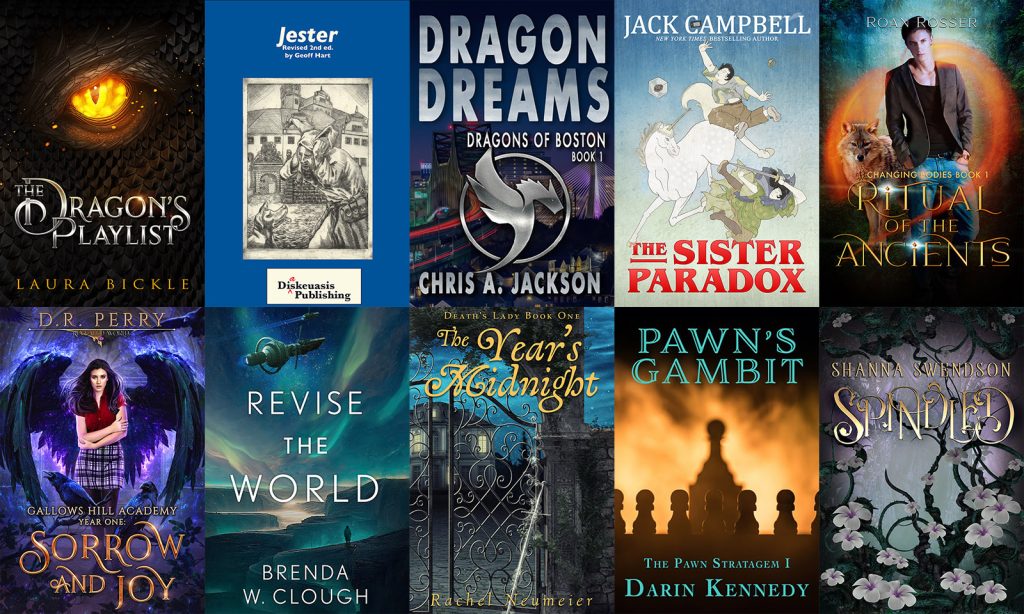movies, fantasy
The Journey’s Beginning
Last weekend, I decided to go back to where it all began and rewatch the movie that got me started thinking about that whole romantic fantasy road trip subgenre, which made me realize it was a thing that I like, which made me realize that a story idea I had long ago actually could fit into that, which led me to replot it and try to write it. I’m currently rewriting it (I’ve been working on it off and on, but I’ve also written seven other books and a number of novellas since then), so since I found this movie on Hoopla, I thought I’d rewatch.
Back in early 2021, I started watching a fantasy movie called The Crown and the Dragon on Amazon, and very early in the movie I knew that this was a kind of movie I’d like, so I stopped it to go make popcorn before settling down to properly watch it. It perfectly fit what I later identified as the romantic fantasy road trip story structure. I’d never seen it before, but I knew each major beat that would happen — not really predicting the outcome, just knowing where the turning points would be. It was interesting rewatching it after doing so much thinking about this topic.
This movie is just barely fantasy cheese. It looks gorgeous. There’s not a lot of info on IMDB, but based on the names of most of the production crew, I’m guessing it was filmed in Ireland. The cinematography is excellent, the score is good, and the acting is far above most fantasy cheese. The actors are neither wooden nor overdoing it. Most of them don’t have a lot of film credits, so I’m guessing they mostly cast Irish stage actors. The two things that drag the movie down are the effects and the plot. Any time a dragon shows up, it’s painful. It’s like someone taped a stick figure drawing of a dragon to the film, or else like a really bad Photoshop job where you can tell that an image has just been pasted into another image, without correcting the light angles, shadows, etc. Then there’s the plot.
Not that the plot is necessarily bad. There aren’t big holes or logical leaps. It just seems to be missing a lot of context. I’ve watched this movie twice, and I still don’t have a good sense of what’s actually going on. The heroine is on a mission to bring a particular item to a castle in time for a king to be crowned, while the bad guys are trying to stop this, and yet we never see the king and we don’t really know why he needs this item. The item’s actually needed for fighting a dragon. We don’t know who the bad guys are or what they’re trying to do. I know fantasy writers are encouraged to leave some of their worldbuilding off the page because you don’t have to explain everything, but you do need to leave the stuff that’s essential for understanding the story. This movie feels like it was based on an 800-page novel that had to be cut down to a two-hour movie, and then the movie had to be cut to under 90 minutes so it could be on TV. Given that this movie is just under 90 minutes and has transitions that seem like they were created to stick in commercial breaks, I wonder if maybe it did start as a longer movie, then the only distribution it got was on TV, so they ended up cutting the stuff that explained the plot.
But it really does fit my pattern. We have the hero and heroine striking the bargain for him to help her get to the castle. There’s bickering along the way, until they’re attacked by the bad guys and barely escape together, which leads to a bonding scene and later to dancing. At their destination, he’s ready to leave her to her destiny, but then he returns to her and helps her achieve her destiny.
The romance is satisfying (though a bit more development in the middle might have helped). The fantasy elements had potential if they’d been explained a bit more. They needed much better dragon effects because that was 1980s-level bad, even though this movie was from the 21st century. There are some continuity issues (that may result from things being cut), like the heroine falling in mud in one scene and the same clothes being pristine in the next scene, or the hero having nothing but the clothes he’s wearing, and then in the next scene, with no explanation he has on different clothes and a sword. Or the time he drops the sword and dives into the ocean to escape a bad guy in one scene, but then in the next scene he has the sword again after he’s out of the water. All in all I’d say the impression is good fantasy cheese that’s a bit frustrating because with a bit of work and a slightly bigger budget it could have been a good romantasy movie. The people making the movie did a good enough job with what must have been a tiny budget that they should have been able to get the chance to go on and do bigger and better things. I remain annoyed by the scarcity of good, big-budget fantasy films. There’s clearly an audience, but aside from the Lord of the Rings movies, it’s like the studios have no clue what to do with them. They don’t know how to pick projects, and they utterly fail in promoting them, which then creates the self-fulfilling prophecy that fantasy movies don’t do well enough to justify the budgets they require.

